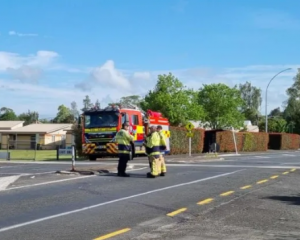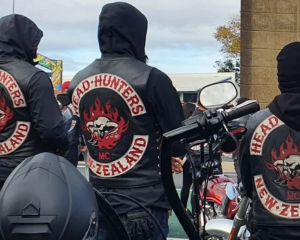
Two people died in one vehicle, and three in the other, when they collided on State Highway 3, at Ōhaupō, north of Te Awamutu just before 4.45pm.
Speaking to media, Inspector Jeff Penno said one of the cars involved crossed the centre line.
"At this stage we don't know why it occurred, we know one vehicle crossed the centre line ... but we need to work out why that occurred."
It was a horrendous event and the thoughts of emergency services were with the family and friends of the victims who were on a long journey of pain and suffering, he said.
Police are not releasing who the victims are at this stage, but Panno said families of the victims had been informed.
Any impairment by drugs or alcohol was a focus in this accident, Panno said.
Early indications were that roading factors were not at fault in this particular case, although the crash did take place in a 100km/h speed zone where there were no centre barriers in place, he said.
Evidence suggested the safest survivable speed for a serious crash on an undivided road was 80km/h, he said.
Centre barriers do save lives, but they were hard to retrofit and sometimes they just did not fit, he said. It was the role of Waka Kotahi to determine priorities regarding centre barriers, although police did feed them with crash information, Panno said.

Panno said police did their jobs in order to save lives.
"Our job is to make sure people on the road are compliant, they're sober, they're alert and they are driving to the conditions and to their ability.
"So when it goes wrong, yes we do take it personally. But equally that gives us the motivation and the passion to do what we do and if that motorist chooses to abuse us for that we do not respond - we think back to this event and say that is why we do what we do."
Waipā Mayor Susan O'Regan told RNZ's Morning Report that the spot where the accident occurred was "not what I would say is a notorious hot spot".
The crash was "heartbreaking and gut-wrenching all at once," she said.
The crash site would have been horrendous for those first on the scene and emergency services had done an amazing job of responding to the "grim" circumstances, she said.
She thanked emergency workers for their service and those who just happened to be the first people on the scene "for acting promptly and doing the right thing".














